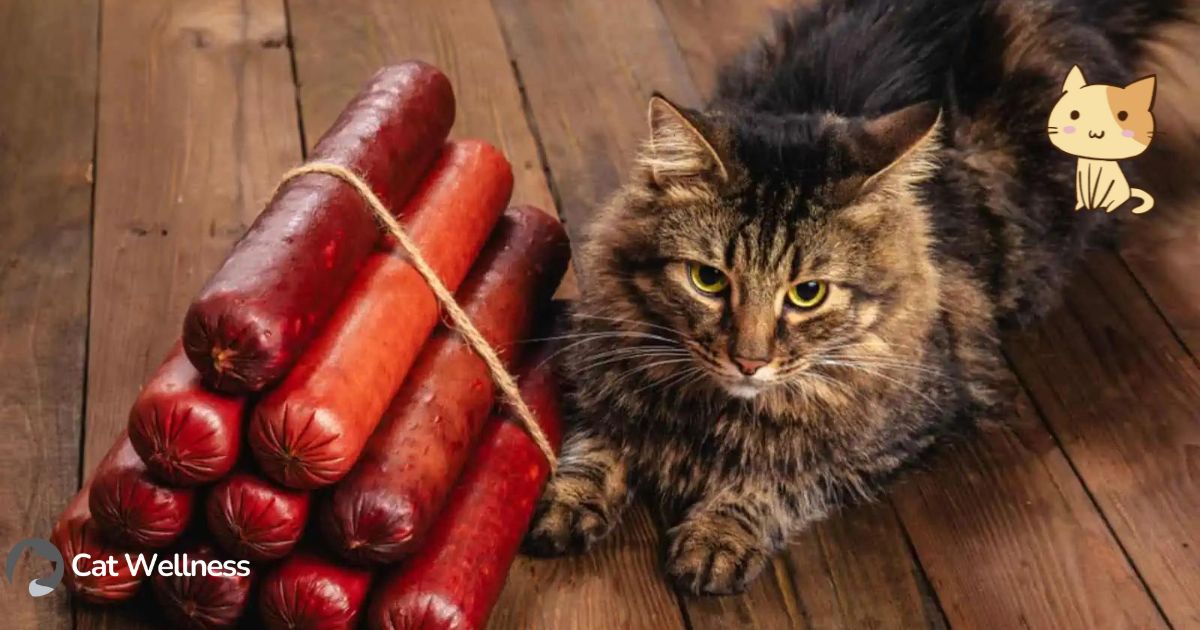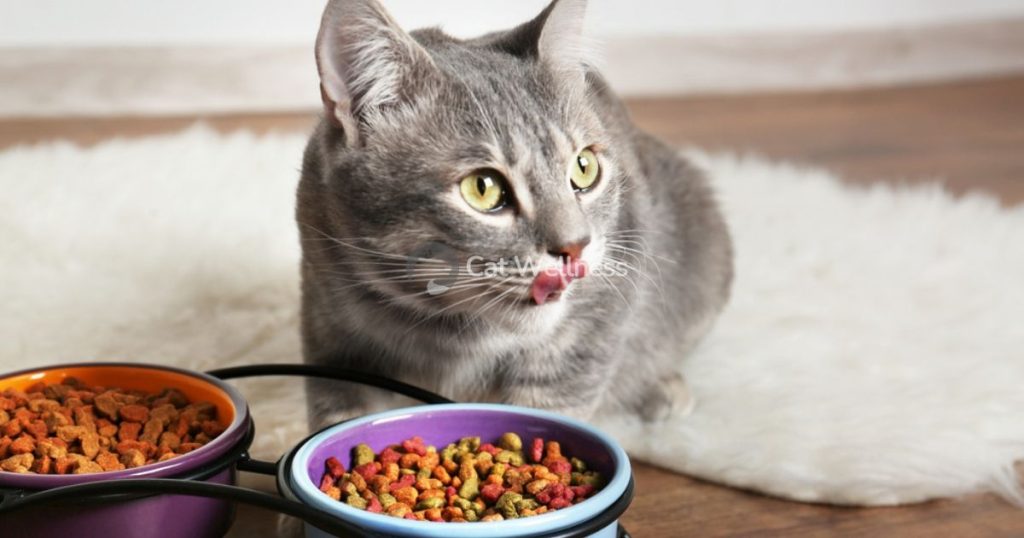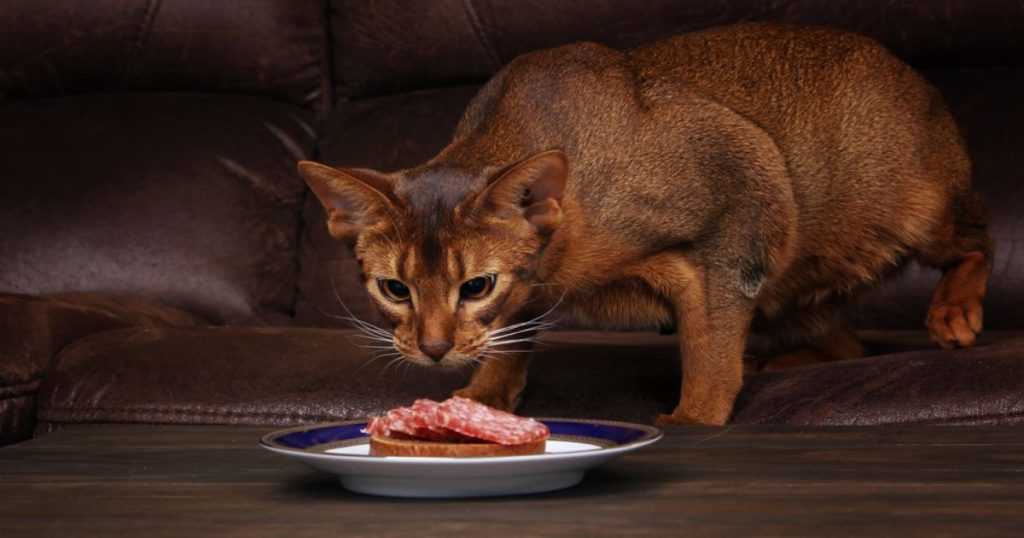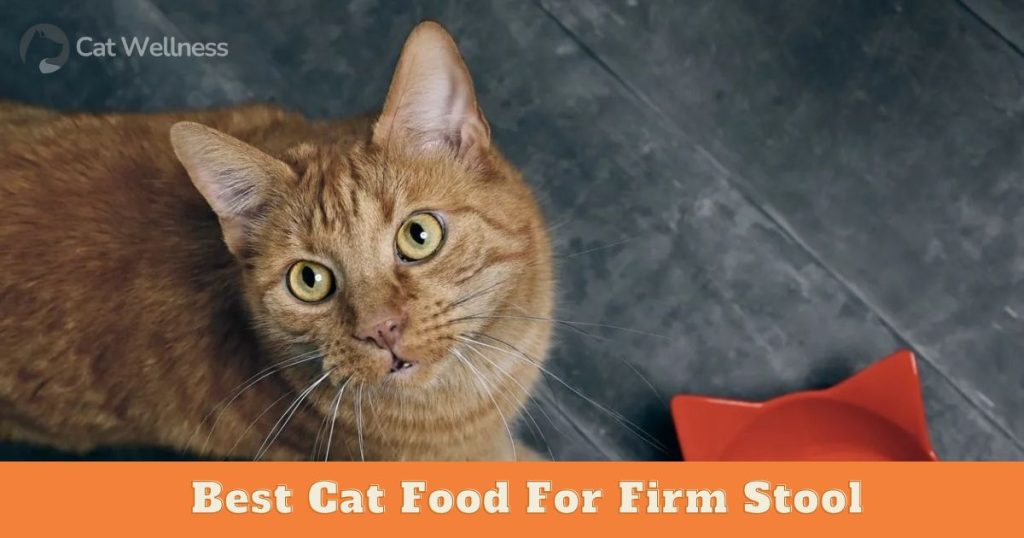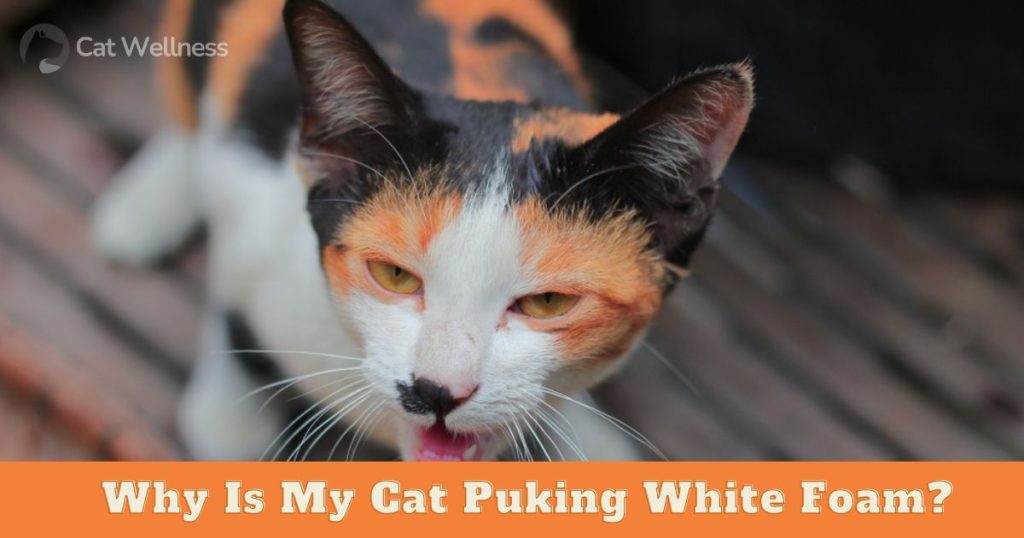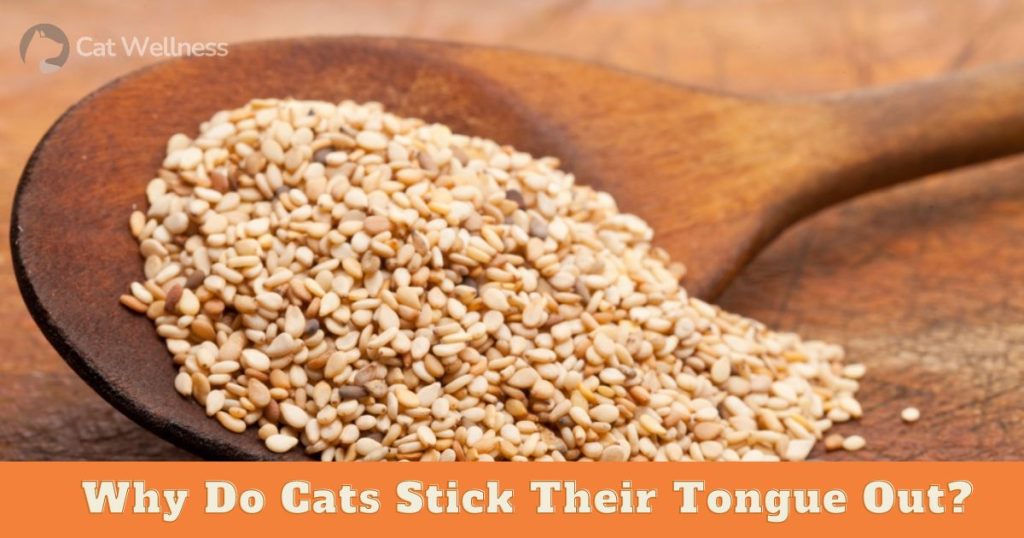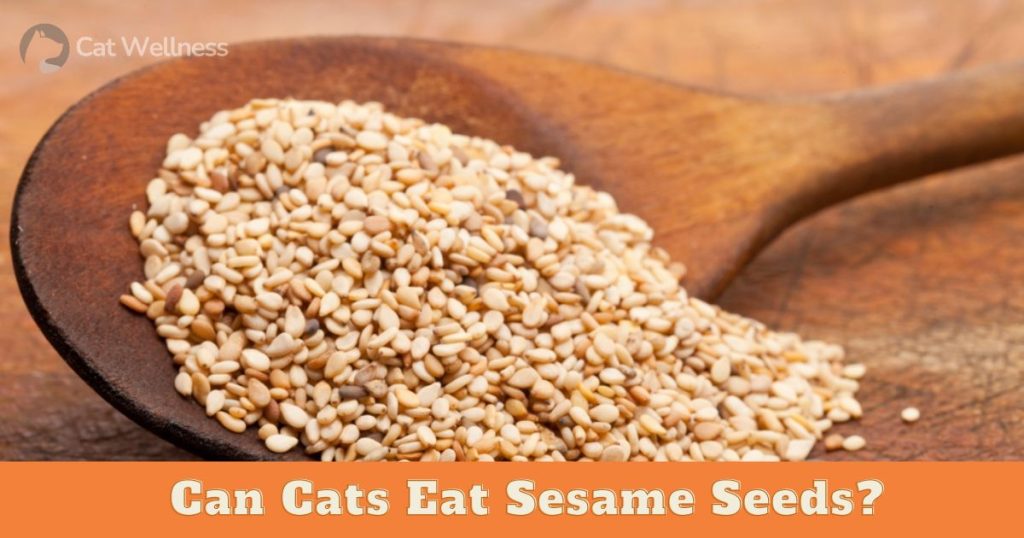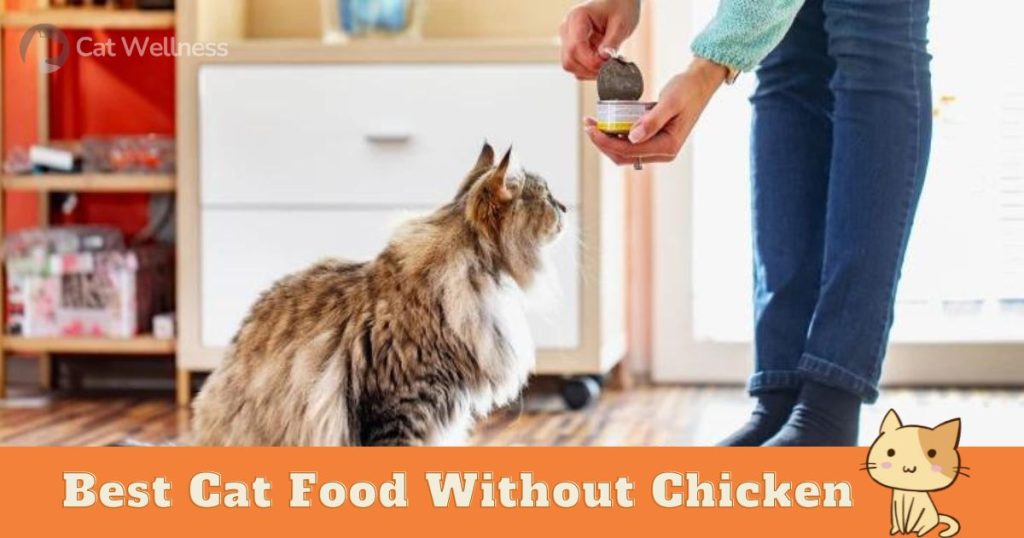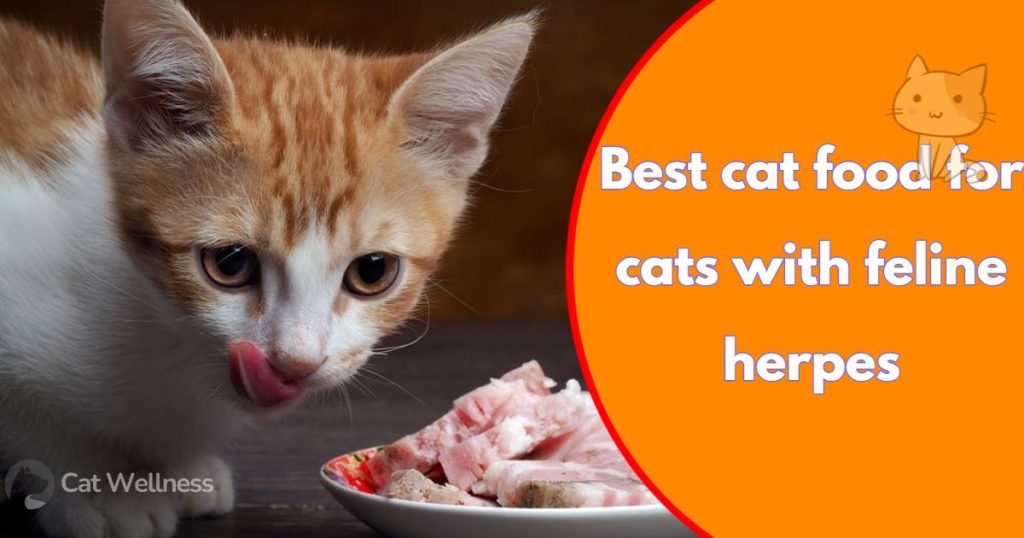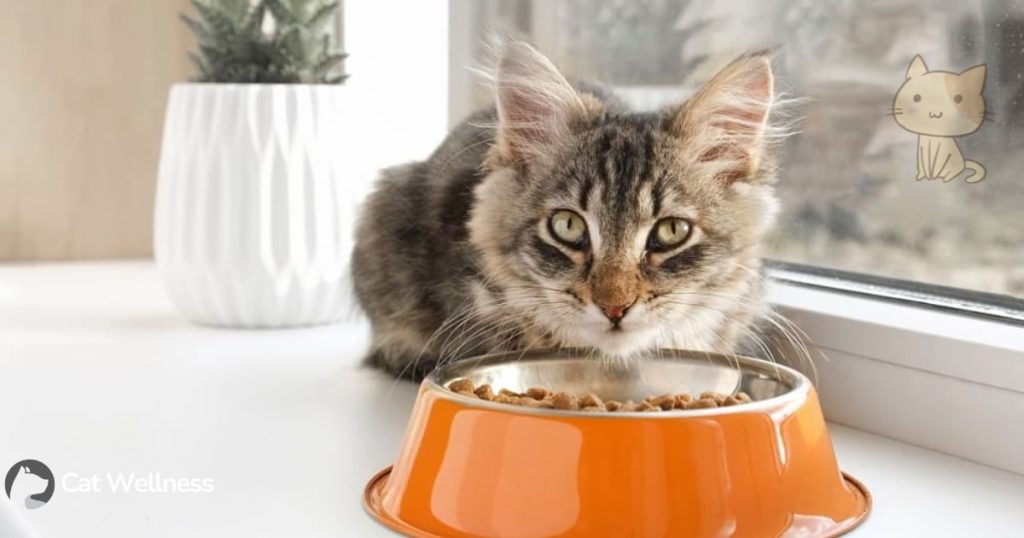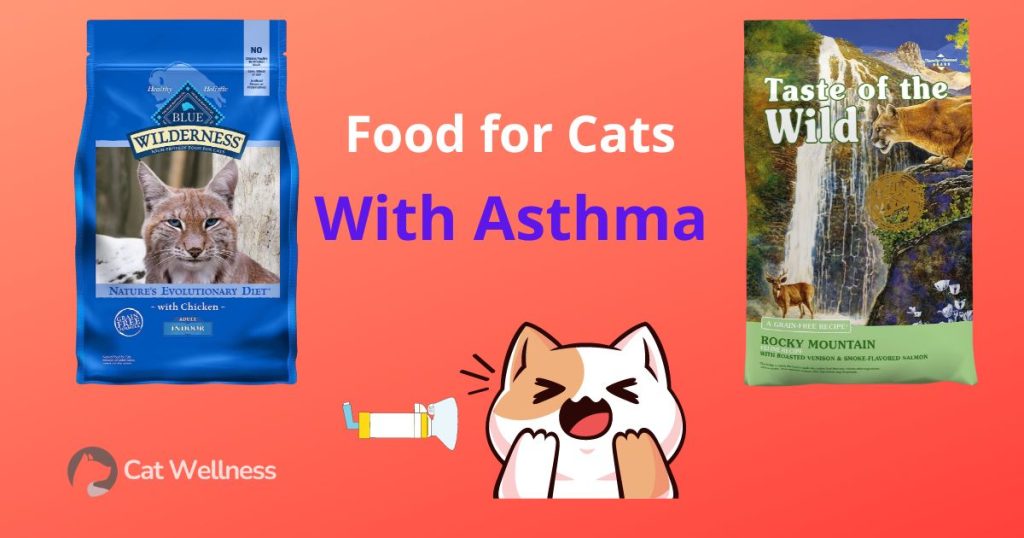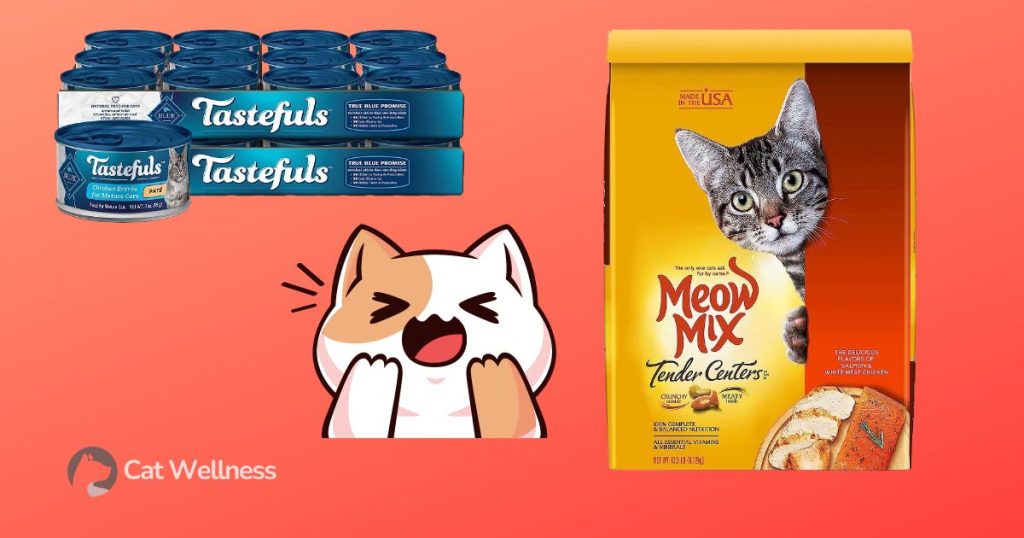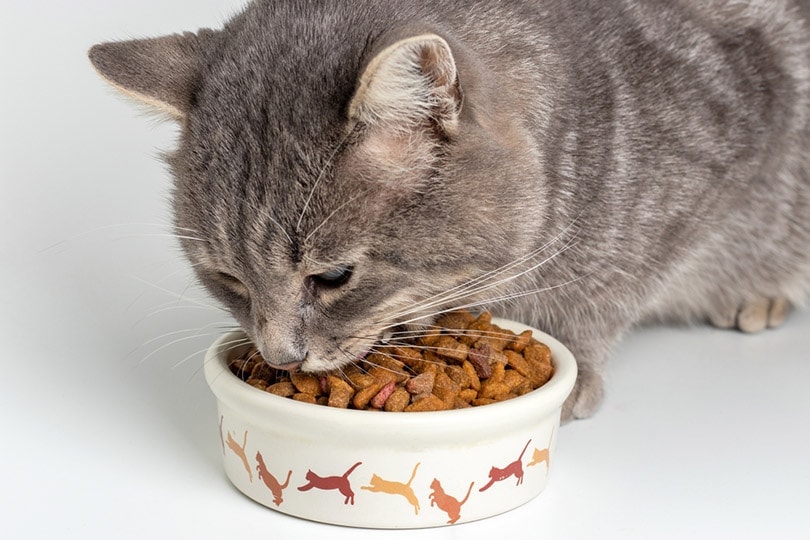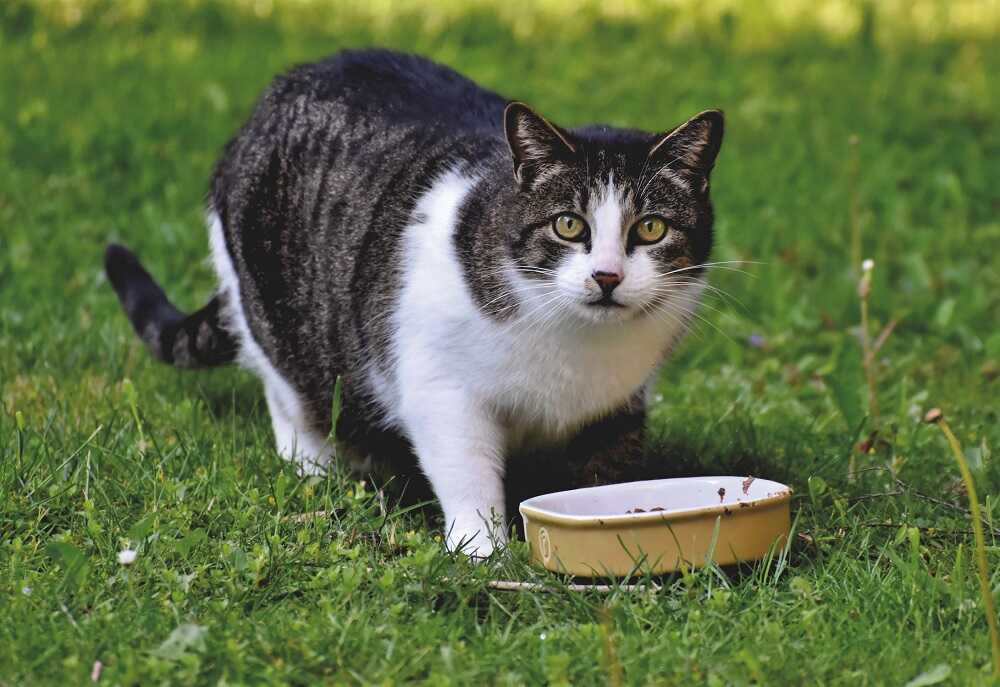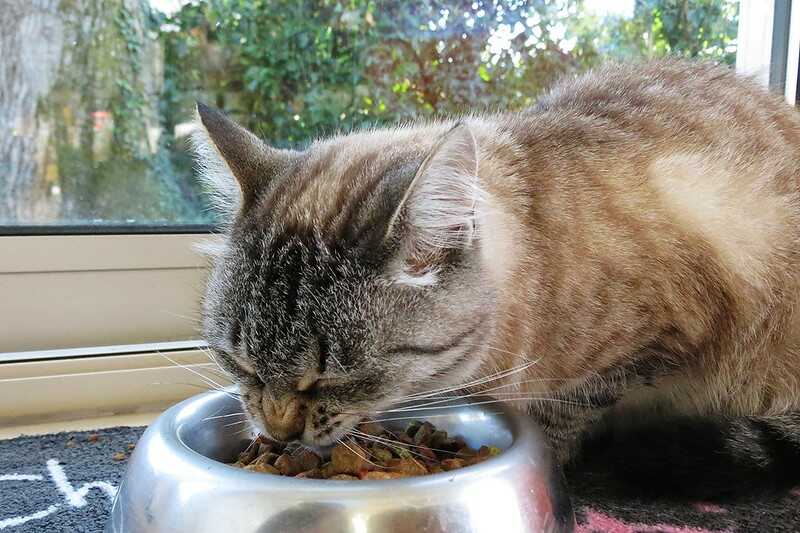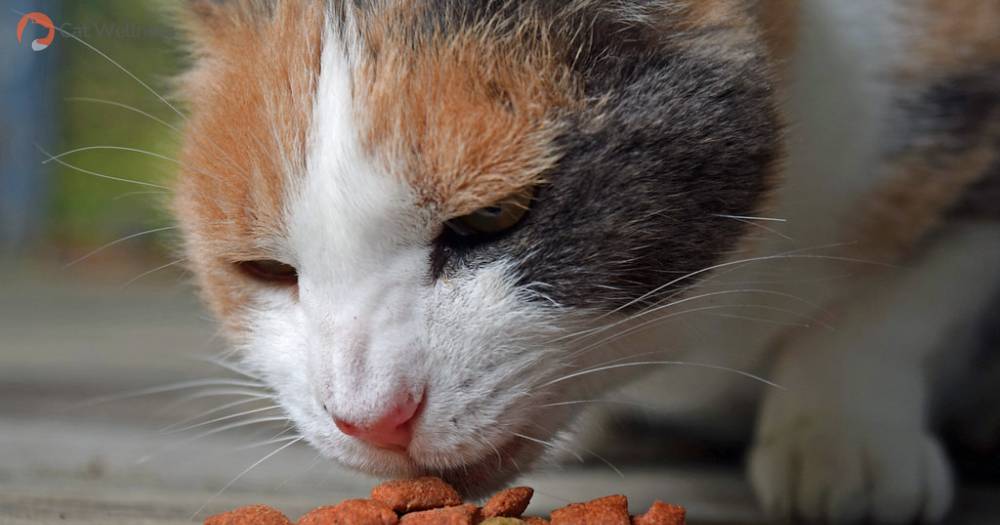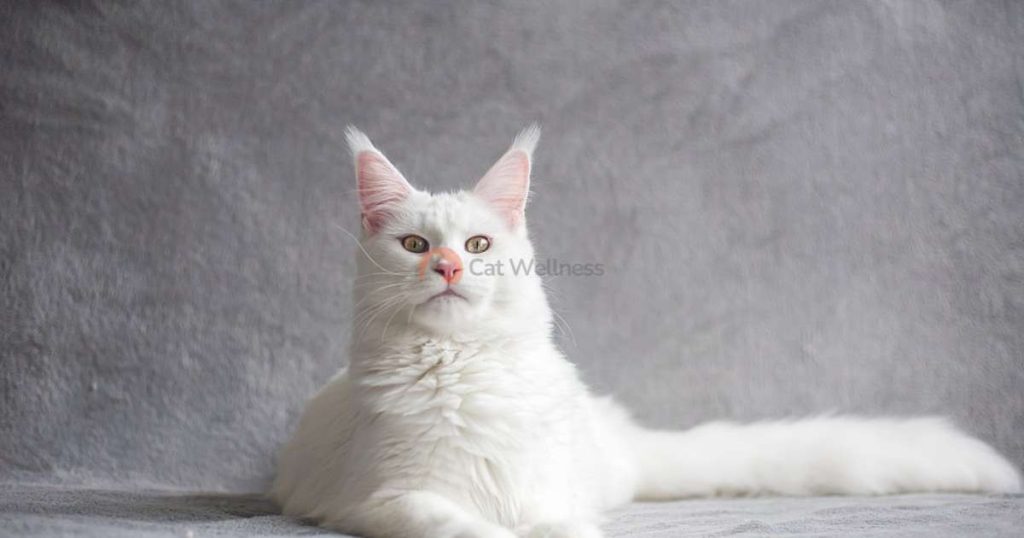Cats are known for being choosy when it comes to food, they may find certain human foods tempting. For example, sausages. But Can cats eat sausage? Although sausage staple provides protein, it falls short of offering the complete nutrition your furry friends need.
The following Catwellness article seeks to provide insights into whether it is safe to give sausages to cats. Additionally, we will offer healthier alternatives to incorporate into their meals.
The video below records the image of a kitten cat eating sausage:
Can Cats Eat Sausage?
The short answer is Yes. But cats should not eat sausage as their main source of nutrition due to the high fat, sodium, and spice content that can be harmful to their digestive system.
Nutritional Needs of Cats
Cats, as obligate carnivores, possess unique nutritional needs that must be met for them to thrive. They depend heavily on the nutrients derived from a diet based largely on consuming prey animals, echoing their wild ancestors’ lifestyles.
Nutrient | Content |
Carbohydrates | High |
Calories | High |
Trans Fats | Present |
Fat and Sodium | High |
Essential Nutrients for Cats | Low |
Fat Content | 20-30% |
Salt Content | High |
For instance, your feline friend’s meal plan should include approximately 55 percent protein and 45 percent fat with only a small fraction of carbohydrates – essentially mirroring the dietary composition of a wild cat.
Providing cats with essential vitamins like A, B complex, D and E is also crucial for their overall wellbeing. Minerals such as potassium, phosphorous magnesium and zinc should be included in feasible proportions too.
Risks of Feeding Sausage to Cats
Introducing sausage into your feline’s diet poses several health risks. Sausages are high in salt and fat, which isn’t healthy for cats if consumed in large quantities.
Over time, this can lead to obesity and related complications like diabetes, respiratory difficulties, and joint problems. Furthermore, sausages harbor preservatives such as sulfites and nitrates which can turn toxic when cats ingest them.
The risk increases with raw sausages as they may contain harmful bacteria such as Salmonella causing dehydration, vomiting, diarrhea or weight loss.
Even cooked sausage remains a concern due to its caloric content potentially leading to excessive weight gain if unchecked.
What Should Cats Eat?
Cats require a diet high in protein and low in carbohydrates, with essential nutrients such as taurine and omega-3 fatty acids for optimal health.
Nutritional Needs of Cats
Cats, as obligate carnivores, possess unique nutritional needs that must be met for them to thrive. They depend heavily on the nutrients derived from a diet based largely on consuming prey animals, echoing their wild ancestors’ lifestyles.
For instance, your feline friend’s meal plan should include approximately 55 percent protein and 45 percent fat with only a small fraction of carbohydrates – essentially mirroring the dietary composition of a wild cat.
Providing cats with essential vitamins like A, B complex, D and E is also crucial for their overall wellbeing. Minerals such as potassium, phosphorous magnesium and zinc should be included in feasible proportions too.
Types of Food That are Safe for Cats
Cats have specific dietary needs, so we should provide them with a balanced and nutritious diet. Here are some types of food that are safe for cats:
- Cat food options: Look for high-quality, commercially-prepared cat food specifically formulated for their nutritional needs. These foods are designed to provide all the necessary nutrients in the right proportions.
- Feline-friendly snacks: Several healthy treats are available in the market specially designed for cats. These treats are often made with real meat and have added vitamins and minerals.
- Meat-based diet for cats: Cats are obligate carnivores, requiring a diet high in animal protein. Good sources of protein include lean meats like chicken and turkey.
- Cat-friendly fruits: Some fruits can be given as occasional treats to cats. Examples include small pieces of watermelon, cantaloupe, or banana. However, always remove any seeds or pits as they can be harmful.
- Vegetable cats can eat: While cats primarily need meat for their nutrition, some vegetables can be beneficial too. Cooked sweet potatoes or carrots can be pureed and mixed into their regular meals to provide additional vitamins and fiber.
- Harmful human foods for cats: It’s crucial to avoid feeding your cat certain human foods that can be toxic or cause digestive issues. These include chocolate, onions, garlic, grapes/raisins, caffeine, alcohol, and anything containing xylitol (an artificial sweetener).
Healthy Alternatives to Sausage
Chicken, fish, and homemade treats are nutritious alternatives to sausage that can satisfy your cat’s taste buds while providing essential nutrients for their overall health.
Chicken
Chicken is a fantastic alternative to sausage when it comes to feeding your feline friend. Packed with protein and low in fat, fresh chicken provides the essential nutrients that cats need for a healthy diet.
Plus, it’s all-natural and free from harmful chemicals or ingredients. Chicken is rich in vitamins and minerals like vitamin A, vitamin D, and zinc and satisfies your cat’s carnivorous instincts.
Fish
Fish is a healthy alternative to sausage for your cat. It is packed with essential nutrients that can contribute to their overall wellbeing.
Many cat food brands offer fish-based options, which are high in protein and provide the necessary fats for a balanced diet.
Fish can also be a beneficial treat for your feline friend. However, you should consider potential urinary tract and kidney problems associated with feeding fish to cats, as some types of fish may be high in phosphorus and magnesium.
Homemade Treats
When it comes to treating your feline friend, homemade treats can be a great option. They offer a healthier alternative to sausage and allow you to have control over the ingredients that go into them.
Homemade cat treats can be made using simple, nutritious ingredients that are both delicious and beneficial for your cat’s health.
Consider making treats using chicken or fish as these proteins are tasty and provide essential nutrients for your cat. You can bake small pieces of chicken or fish until they are cooked through and offer them as bite-sized treats.
Another option is to make homemade treat recipes that are grain-free, low-carb, salt-free, and preservative-free. These treats ensure that your cat gets the best possible nutrition without any harmful additives.
Conclusion
In conclusion, while cats can technically eat sausage, it is not recommended for their overall nutrition. Sausage contains high levels of fat and sodium that can be harmful to cats if consumed in excess.
Instead, it is best to focus on providing cats with a balanced diet that consists of cat-friendly foods such as chicken and fish. Remember to always prioritize your cat’s health and consult with a veterinarian for specific dietary needs.
Recommended Reading

